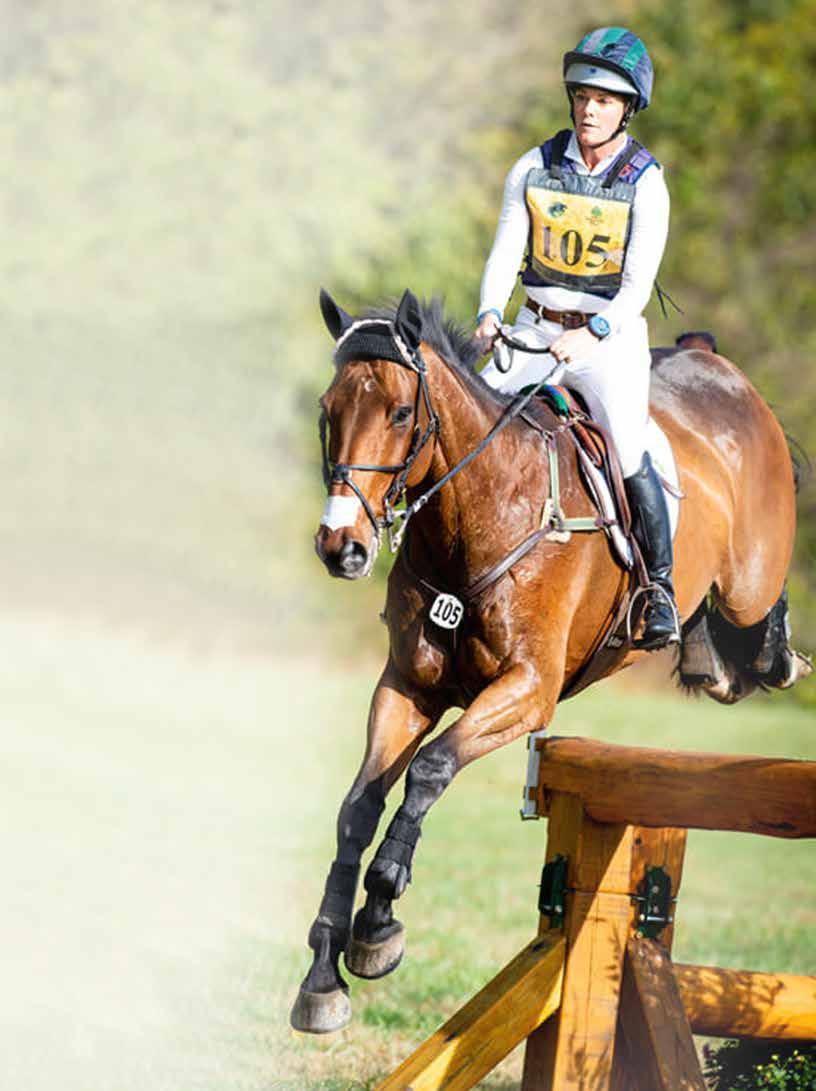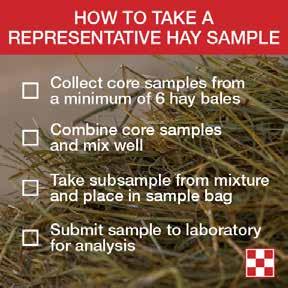
1 minute read
Identifying Cyathostomin Burdens
A new antigen may be important in accurately identifying cyathostomin burdens when combined with previously identified cyathostomin antigens in an enzyme linked immunosorbent assay (ELISA) detecting cyathostomin-specific IgG(T) antibodies in horse serum.
This 3-antigen cocktail is being used to develop a commercial test to detect all stages of the small redworm life cycle, including the encysted larval phase. Until now it has not been possible to test for encysted small redworm as fecal egg counts only detect the presence of egg-laying adult worms.
Advertisement
The researchers obtained cyathostomins from naturally infected horses, which had been collected for other research projects, and used them to experimentally infect horses. Then they collected sera from these animals at various stages of infection and compared these samples with those taken from horses that did not have helminths.
The researchers wanted to define serum immunoglobulin G(T) responses to 2 antigens from the most common species. They tested 3 cocktail combinations: Cy-GALA proteins from 2 species and a Cy-CID protein from a third species (CT3); Cy-GALA proteins from 5 species (CT5); all CT5 components, plus a CyCID protein from an additional species (CT6).

Encysted cyathostomin larvae in the gut wall of an infected horse
The best predictive values for infection were obtained using CT3 and CT6, with similar values achieved for both.
There are only 2 active ingredients licensed in the United States to treat encysted small redworm. To protect their effectiveness, targeted treatment programs will help ensure that the dewormers are only administered when needed, according to Jacqui Matthews, PhD, FRSB, FRCVS, RCVS, chief Technology Officer at Roslin Technologies in Edinburgh, Scotland, and the inventor of the test. Blood test results with historical fecal egg count results and assessment of grazing management would provide more information to enable veterinarians to make decisions about treating an individual horse or group, according to the researchers.
Right now, the small redworm blood test is only available in the United Kingdom from Austin Davis Biologics in Scotland.
https://www.austindavis.co.uk/small-redworm blood-test.
For more information:
Tzelos T, Geyer KK, Mitchell MC, et al. Characterisation of serum IgG(T) responses to potential diagnostic antigens for equine cyathostominosis. Int J Parasitol. 2020 March 12 https://www.sciencedirect.com/science/article/abs/pii/S0020751920300382






